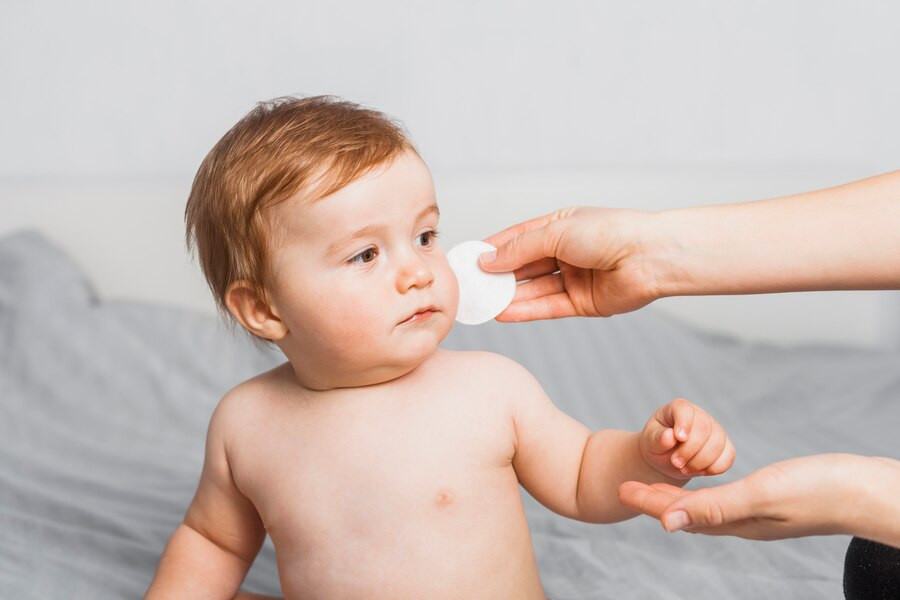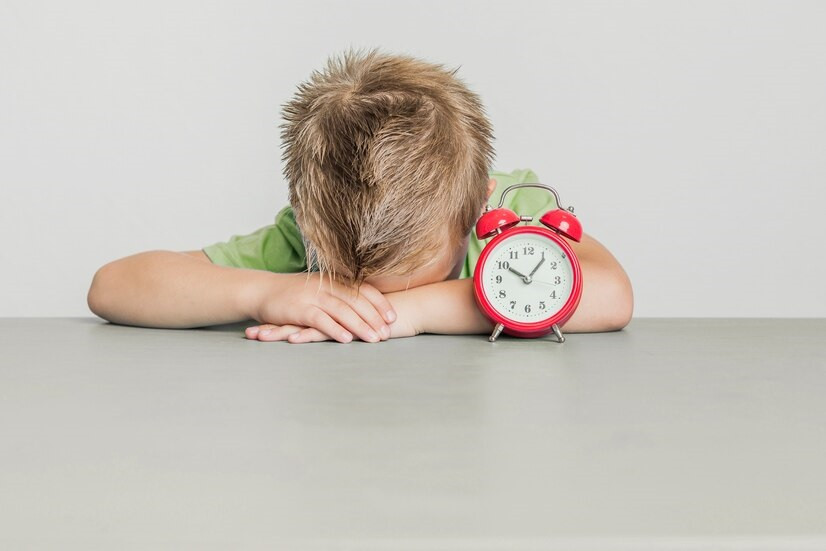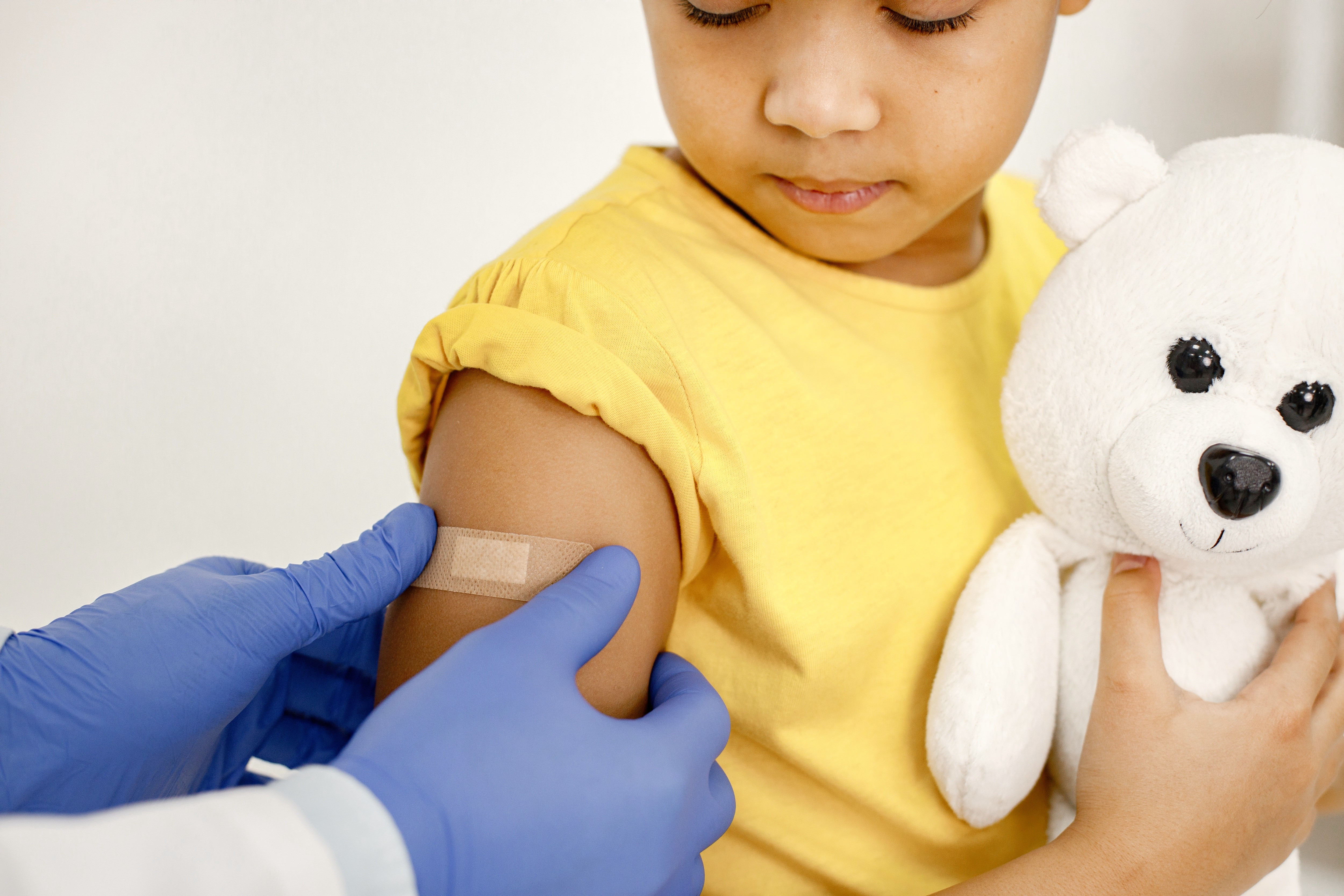Iron is one of the essential nutrients needed for children's growth and development. Unfortunately, there are still many cases of iron deficiency. What are the significant effects when babies and children are iron-deficient?
The effects of iron deficiency
Iron plays an important role in various bodily functions, including oxygen transportation in the blood. Iron deficiency in infants and children can negatively affect their health, including:
Impaired growth and development
Iron-deficient children may experience stunted growth and developmental issues.
Iron deficiency Anemia
anemia is a health condition characterized by insufficient healthy red blood cells in the body. It is more prevalent in infants and children who lack adequate iron levels. Children with this condition may exhibit symptoms such as weakness, fatigue, pale skin, reduced appetite, and increased susceptibility to infections.
Cognitive and behavioral disorders
Iron deficiency can lead to cognitive and behavioral disorders in children. They may encounter challenges like learning difficulties, reduced concentration, and memory issues. Additionally, they may exhibit increased irritability, restlessness, and moodiness.
Other health problems
Iron deficiency among infants and children heightens the vulnerability to infections, disrupts sleep patterns, and impairs the regulation of body temperature.
Causes of iron deficiency in infants and children
Certain conditions put infants and children at risk of iron deficiency, including:
- Premature birth
- Low birth weight in infants
- Consumption of cow's milk or goat's milk before age 1
- Breastfed infants not receiving iron-containing complementary foods after 6 months
- Formula-fed infants without added iron
- Consumption of over 710 ml of cow's milk, goat's milk, or soy milk daily for children aged 1–5
- Specific health conditions, like chronic infections
- exposure to lead
- Inadequate intake of iron-rich foods
- Being overweight or obese
Signs of iron deficiency
Iron deficiency often goes unnoticed by parents, as its symptoms can resemble common issues. It's important to be vigilant for signs of iron deficiency in infants and children, such as:
- Paleness of the skin
- Fatigue
- Cold extremities (feet and hands)
- Delayed growth and development
- Reduced appetite
- Abnormal or rapid breathing
- Irritability, anger, or restlessness
- Frequent infections
- Displaying pica behaviors or cravings for non-nutritious items like ice, dirt, paint, or flour
If you notice these symptoms, it's advisable to bring your baby or child to the doctor for an evaluation. If iron deficiency is confirmed, the doctor may prescribe daily iron supplements or vitamins.
Additionally, you can enhance your diet with iron-rich foods like pasta, bread, fortified cereals, red meat, organ meats, poultry, fish, leafy greens, and legumes. If you need medical advice or consultation, you can either visit a doctor or make use of the consultation features that are available in the Ai Care application by downloading the Ai Care application from the App Store or Play Store.
Looking for more information about pregnancy, breastfeeding, and the health of women and children? Click here!
- Sean Edbert Lim, MBBS
Mayo Clinic (2022). Iron deficiency in children: Prevention tips for parents. Available from: https://www.mayoclinic.org/healthy-lifestyle/childrens-health/in-depth/iron-deficiency/art-20045634
Nationwide Childrens (2022). Iron-Deficiency Anemia in Children. Available from: https://www.nationwidechildrens.org/conditions/health-library/iron-deficiency-anemia-in-children
Cleveland Clinic (2023). 13 Symptoms of Low Iron in Kids. Available from: https://health.clevelandclinic.org/what-causes-iron-deficiency-in-your-child-and-how-to-spot-it/
Better Health Channel. Iron and iron deficiency. Available from: https://www.betterhealth.vic.gov.au/health/conditionsandtreatments/iron#what-is-iron
National Institutes of Health (2023). Iron. Available from: https://ods.od.nih.gov/factsheets/Iron-Consumer/
Boston Children's Hospitals. Iron-Deficiency Anemia. Available from: https://www.childrenshospital.org/conditions/iron-deficiency-anemia
Kids Health (2023). Pica. Available from: https://kidshealth.org/en/parents/pica.html











